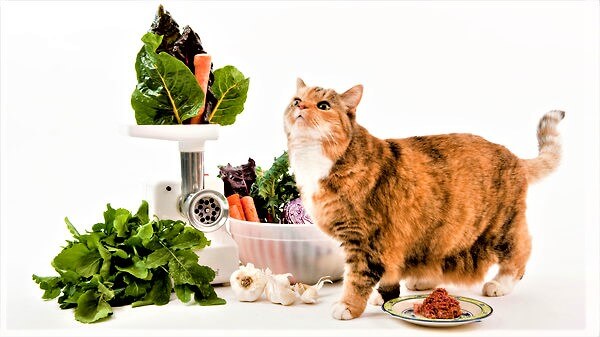animal control lahore
What does an Unhealthy Diet for Cats & Dogs Look Like?
Whenever you get a new pet, you will find yourself asking questions like “What should I feed my cat?” and “Will this food poison my dog?’’
Afterall, there is nothing more rewarding than seeing your pet well-fed and happy.
Feeding is a great aspect of animal care and it is no secret that good health demands a good diet.
A well-balanced diet will have the right amount of nutrients, including fats, carbohydrates as well as proteins. Along with this proper hydration and physical activity is also crucial. On the contrary, an unhealthy diet will consist of too much fatty and sugary substances and for specific animals, toxic foods are also harmful.
An ‘improper diet pattern means that you are feeding:
- Too much or too little
- Toxic fruits and vegetables
- Human beverages
- Sugary and salty food
- Human medicines
- Too much processed food
Feeding too much or too little
Overfeeding leads the cat or dog to become obese and lethargic and can also pose a risk for diabetes alongwith liver and heart diseases. Conversely, underfeeding is also unhealthy because it leaves your pet malnourished from basic vital nutrients. It will therefore be more susceptible to get immune and nerve disorders and fatigue.
Inadequate nutrition also results in behavioral issues including anxiety, aggression and frustration. You might even see adverse physical changes in the coat, skin, body and limbs of the animal.
Giving pets toxic fruits and vegetables
Widely considered to be an inseparable part of human diets, these fruits and vegetables can cause problems for cats and dogs.
- Toxic vegetables:
Onions and garlic cause red blood cell damage and further health issues if eaten in large amounts. In addition to this, unripe tomatoes, mushrooms and scallions should also be avoided.
The negative effects of eating any cooked, raw, fried or dried forms of these veggies can be seen a few days after eating.
- Toxic fruits:
Raisins, grapes and cherries may be tasty but they can be extremely toxic for cats and dogs with already present health conditions and can cause kidney damage. Citrus fruits (like lemons, oranges) and avocado will upset the stomach or cause vomiting.
Feeding human beverages
It is quite obvious that not everything us humans eat will necessarily be cat or dog friendly.
Here’s a few human drinks that should be avoided for a healthy diet:
- Milk – It is highly toxic for dogs and even cats. Although kittens and puppies can drink their mothers milk, they gradually lose the ability to digest processed milk as adults. After drinking milk, adult cats and dogs experience digestion problems or triggered food allergies.
- Caffeinated drinks – They contain dangerous chemicals and cause lethal effects including nausea, restlessness, fever and seizures.
- Alcohol – Even small amounts can cause a cat or dog having severe nervous system and breathing issues.
Alternatively, the best beverage you should be offering your dog is just plain, fresh water.
Feeding sugary or salty food
While cakes, biscuits and sugary drinks may be yummy for humans it is not the same with cats and dogs.
They are not particularly dangerous but:
- Cats in fact, have limited taste buds which means they can’t really taste sugar. They may, however, taste your sweet snacks because the protein or fat content in them attracts them.
- Dogs, having developed a sweet tooth, may taste sugary flavours but this too can easily lead to obesity, diabetes and dental issues.
Chocolate especially, can also harm the pet’s heart, kidneys and gut. Darker chocolates can cause more poisoning than others so they should be avoided.
Just as too much salt is bad for humans, it is even worse for cats and dogs. It can cause poisoning in the form of vomiting and neurological side-effects.
Giving human medicine as home treatment
Feeding medicines to your pet requires even more attention than feeding food. Giving the wrong vitamins, for example, can lead to mineral overdose.
Human medicines (tablets, syrups, injectables) that are not designed to suit animal nutritional needs and anything that’s not recommended by a vet should not be used for sick pets.
Following raw food diets
Occasionally giving cats and dogs raw meat doesn’t cause much harm.
But sudden introduction of raw food (raw eggs, meat, fish and bones) will easily disrupt the digestive system.
You will see many cats and dogs including strays having no problem eating raw protein. But the large amounts of parasites in poultry have been found to cause Salmonella, E.coli and skin problems.
Although raw meat is much safer for dogs than it is for cats, boiling or cooking is the best option because it will eliminate bacteria and avoid food poisoning as well.
However, if you wish to follow a raw diet for your pet, be mindful of the hygiene and freshness, and different raw meat options that you can consider.
Including too much processed food in the diet
Commercially processed cat and dog food, for many pet owners, seem to be the best feeding option.
Dry food is great as long as it has all the right ingredients and is balanced. The problem is that many processed foods nowadays have questionable ingredients like food dyes and artificial fats.
Pets that eat solely dry food, can become easily dehydrated and bored of their food. Dry food is low in carbohydrates and leads to obesity and feeding only it can be unhealthy.
In this aspect wet food is better even though it is also processed. For pets that are regularly constipated or obese, small amounts of warm wet food is healthier and more digestible.
At Petsworld, we offer a wide range of the best cat and dog foods. To read more about pet diets and feeding, head over to our blog.

